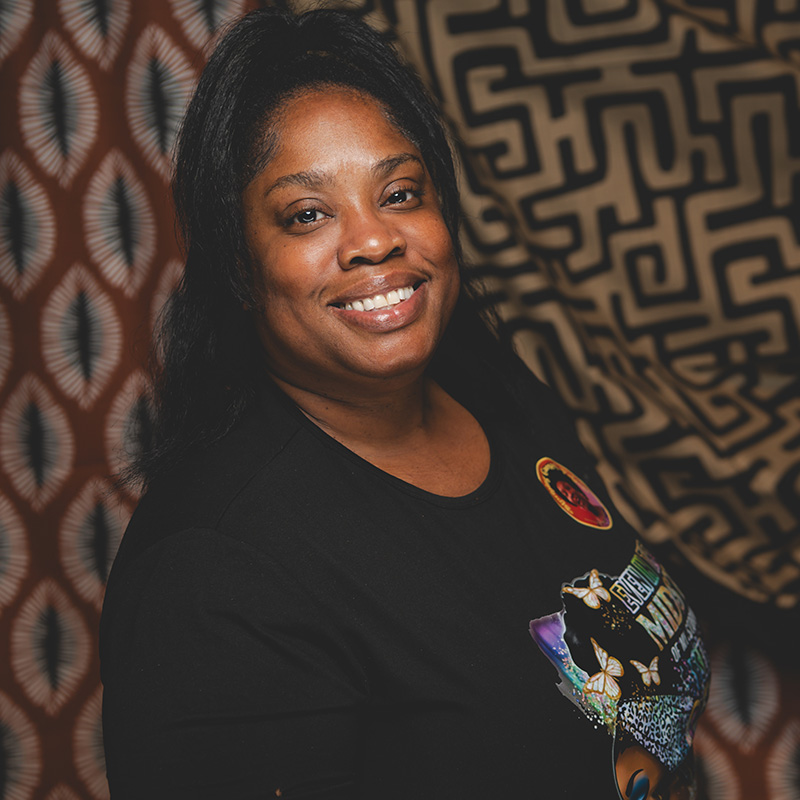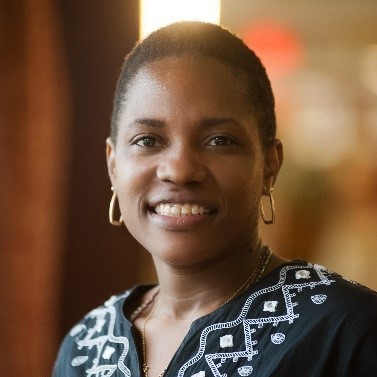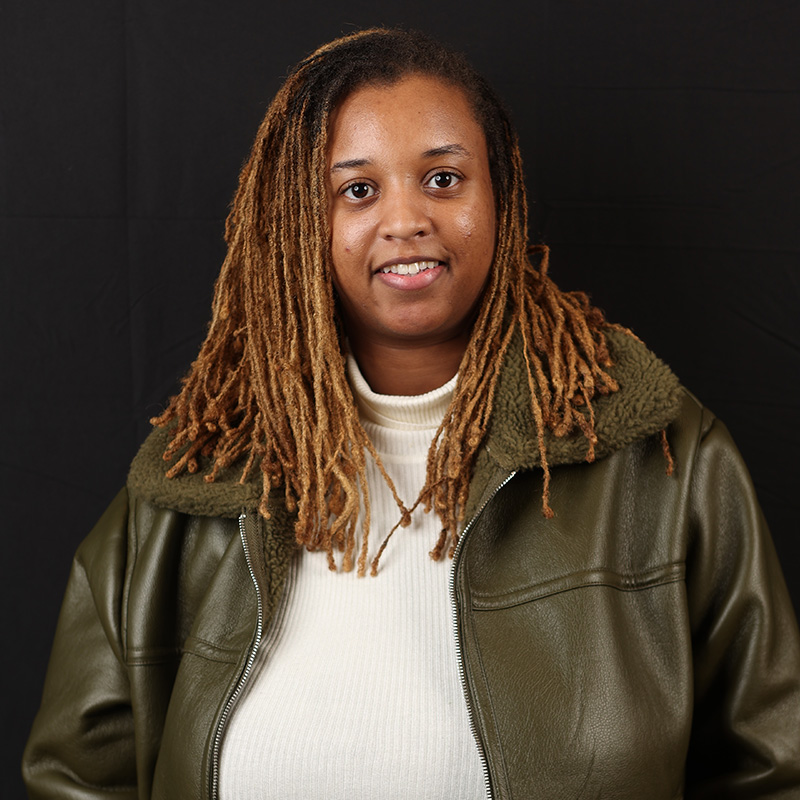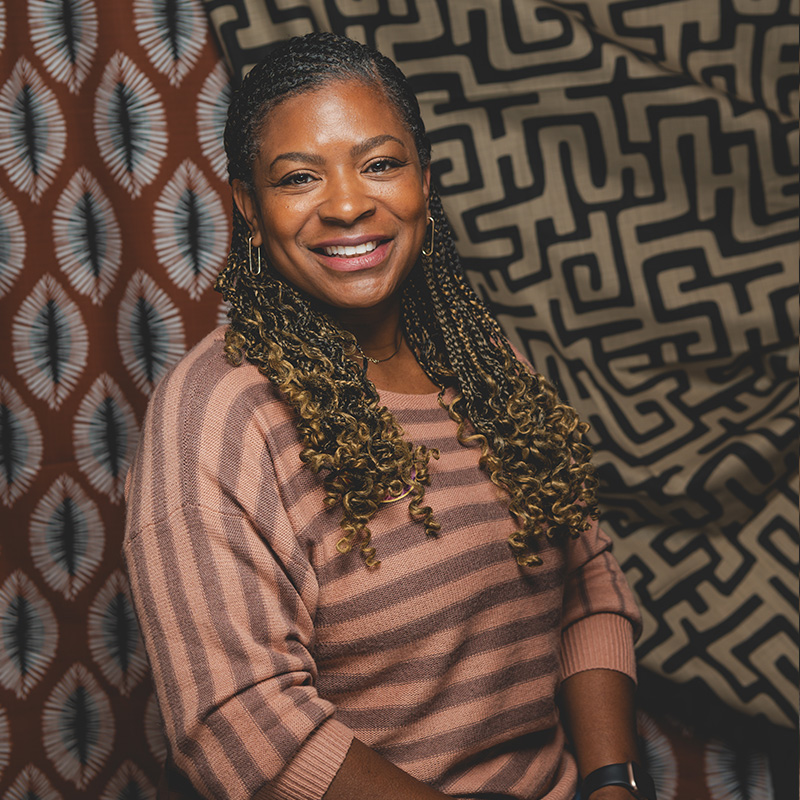
Charlesetta Lee
"Being raised in the welfare system is generational. It's almost like a generational curse. Because it's a hamster wheel. You're trying to get off the wheel. The wheel is going so fast. You're like, I'll just rather stay on the hamster wheel."
Charlesetta Lee
Ashby Combahee
Alright, so my name is Ashby Combahee and I’m here with Dartricia Rollins. We are interviewing Charlesetta Lee for this Telling Our Stories: Black Women’s Leadership Legacy events. Today is September 23rd, 2023, and Georgia Dusk, southern liberation oral history is conducting this oral history at 7 Stages Theatre in Little Five Points neighborhood of Atlanta. The you have been asked to participate in the storytelling project to uplift the stories of Black women and their lineage of radical leadership and part of the film screening of Storming Caesar’s Palace. Storming Caesar’s Palace uplifts the story of a band of ordinary Black mothers who launched one of the most extraordinary yet forgotten feminist anti poverty movements in US history, providing a blueprint today for an equitable future. This oral history collection is in partnership with The GRO Fund, filmmaker Hazel Gurland-Pooler, Red Owl Partners, Tender Foundation, Black Feminist Futures, the Center for Civic Innovation Atlanta, Represent Georgia, and WRFG Atlanta. So with all that, Charlesetta, can you please introduce yourself by saying your full name, your pronouns and your age?
Charlesetta Lee
Charlesetta Lee, and pronouns is her/she? I’m 43 years old. And what’s the last question.
Ashby Combahee
You answered it all.
Charlesetta Lee
Okay. Cool.
Ashby Combahee
So we like to ground these oral histories by asking, each participant, who do you dedicate this oral history to?
Charlesetta Lee
I’m going to say I dedicate this to my godmother, who recently just passed away. August 19. And so I’m gonna dedicate this to her. And her name was Quinette Ozen. And she was a she was the owner and founder of Nellie’s Soul Food in Oakland, California. I’m originally from California. So I’m still kind of getting used to Georgia a little bit. So. But yeah, dedicate this to her. In her memory.
Ashby Combahee
Thank you for lifting up her name.
Charlesetta Lee
Yes.
Ashby Combahee
Sorry for your loss.
Charlesetta Lee
Thank you.
Ashby Combahee
When did you move to Atlanta?
Charlesetta Lee
In 2016. So, it’s been about seven years, I think. Yeah.
Ashby Combahee
Okay. So who are the key people of your life? And what were the values that they instilled in you?
Charlesetta Lee
The key people would have been my godmother Quinette. She instilled in me hard work, and to keep pushing past adversity and just hard times. She was my stren..kind of my strength. You know, she, she was very encouraging and things like that. But she, I guess she did more of showing me than telling me just by the things she had been through and how she just overcame and things like that. Another key person I would say would be the lady who raised me which would have been her name is grandmother Faye I call her Faye, Faye Crossley. My mom deceased when she when I was nine, my father was already you know, killed and right before I was born, so I was raised in a foster care system. And I came across the lady who just changed my life, Faye Crossley. And she took care of me, she taught me the value of you know, education, and something I would have never seen if I stayed, you know, where I was at, and, you know, raised in the projects, and just having that limited view of things that, you know, I couldn’t see but I felt so she just told me, you know, to, you’re never too old to learn, or you’re never too young to learn, just continue going to school and you know, bettering yourself, and she’s still living and we still have a really good strong connection. And of course, my my daughter, I have one, one daughter and four sons, and she’s just, she’s my my strength and my hope, because I’m, I’m looking at her and I’m like, wow, and learning, you know, teenagers and her, you know, coming out and things like that. So I’m learning her but I just see her heart and how pure it is and how loving she is and how she cares about other people. And so it is something that I can, you know, leave on. I know it will be through her because she, she kind of possess my strength. And I see it in her. And so yeah, I want to say those three women are really well, women and girls. Yeah.
Ashby Combahee
So you’ve touched a bit on your childhood and being raised up in the foster system. And so one of the questions we’re asking folks is, how did your family provide for you?
Charlesetta Lee
Kinda like how, you know, Ms. Ruby did through the welfare system. Before I, you know, went to foster care, but being raised by my mom, she was a single mom, and I remember getting like, her getting like food boxes. And they were called, like, the government boxes or something. So it had the, the cheese, the butter, you know, maybe eggs, or something maybe rice or something. And she didn’t have much, but she made sure that, you know, we survived. So we learned how to cook different things like cheese sandwiches, or sugar sandwiches or syrup sandwich. It was in we were in survival mode. But we never went hungry. Grew up on a lot of Top Ramen noodles and things like that. So yeah. But yeah, unfortunately, you know, brain cancer took her life and her, I think losing my father kind of, you know, drive drove her a little bit off the edge, and she started using drugs, and she ended up being diagnosed with AIDS. So she was 33. You know, she left us behind. Three children. I’m sorry, I didn’t mean to think about that. But I just when I think about her, I think about just how she would come home. And we although we lived in the projects, we had, like the cleanest house in the projects since my mom had a little OCD. And she would just make sure that we were just not playing about the house. And, you know, and things like that. But I saw her strength shining through and I just, you know, I believe that she kind of lived through me and yeah, so, yeah, she was she was an amazing woman. She was just young, you know, when she passed. Yeah.
Ashby Combahee
She sounds like an amazing woman. I appreciate you for sharing more about her.
Charlesetta Lee
Yeah, absolutely.
Ashby Combahee
So my last question for you. And then feel free to share more after this.
Charlesetta Lee
Okay.
Ashby Combahee
But what might a guaranteed income or direct cash support mean for you or your family or your community?
Charlesetta Lee
Well, currently, I’m at this thinking process of, me and my sister talking about it all the time. So, being raised like on the welfare system is generational. It’s almost like a generational curse. Because it’s a it’s a hamster wheel. You’re trying to get off the wheel. The wheel is going so fast. You’re like, I’ll just rather stay on the hamster wheel, because there’s no there’s no outlet. I mean, if you’ve you’ve if you found one, then of course, you have a really strong support system. But if you’re somebody like me, who doesn’t, then it’s kind of like you’re stuck in the system. Because it’s like damned if you do damned if you don’t. So if you get a job, of course, they’re cutting your food stamps. If you have like housing, they’re raising your rent. They tell you, you can’t have more than this in your savings account. So you never really can, you know, get a savings to get off of the system or to get yourself out of poverty, because it’s a catch 22. So that’s kind of where I’m at where it’s just like, I’m like her [Ruby Doris]. Like she said, I don’t want to be on the welfare system. I don’t want that system. But if there’s a way where I can still support my kids and work and just become who I’m supposed to be without having to worry about paying my bills, then I think that will be, you know, helpful, you know, whatever help that doesn’t feel like a foot on my neck. So, yeah, I mean, it would be a good program to people who are just trying to step, you know, step in the right direction. So, I know, the Tender Foundation, that’s how I found out about this place, because I didn’t, I never heard of it. And so they connected me and I’m here today. And they had a program like that, unfortunately, I wasn’t picked, but I was so happy for whoever was picked, because I’m like, they don’t know that little bit of help, that a little bit of help really goes a long way. Really does. Cause I don’t know, I feel like the system is, bad as it sounds, but it’s just like, you know, I’ve been a single mom, my oldest son is what 25. And I’ve been kind of single raising my kids, because it’s that dynamics that’s, you know, taken away. You know, the father figure, and then you have to have the strong Black woman’s cape on all the time. And it’s like, well, who’s gonna be strong for the Black woman, the mother when you know, so it’s tough. It’s, it’s a tough situation to be in. But I believe anything is possible. I believe that you work hard enough, you’ll, you’ll you’ll, you’ll come to that. That silver lining, you know, or that, that rainbow on the cloud that we all hope to someday attain. And like, she said, what if you don’t have the bootstraps to pick up, you know, you’re starting from scratch. And so if you don’t have the bootstraps, you got to make your own boot. Create a strap. So that’s where I’m at right now. And I hope to make a change. Just by maybe helping the people that are in power to know that we’re not lazy, we’re tired. And we don’t want a hand out, we just want that hand up. And I went to a program today about entrepreneurship and learning how to start your own business and things like that. So it’s like, I’m doing everything possible, you know, and I just need the golden ticket that some people seem to have and others don’t. Feel like the Willy Wonka and the Chocolate Factory, he was about to get the golden ticket. And unfortunately, a lot of us don’t get that opportunity.
Dartricia Rollins
You mentioned, like in the in your, you’re thinking, like, if you had this, like if you had the support that you need it. And if other people have the support, they need to be who they want it to be. And we have this like in movement work this phrase called Freedom Dreaming. And I’m curious if you would share. If you did have all your needs met, if you had, yeah, literally all of your needs met your your needs met? Who would you be? What would you want to do?
Charlesetta Lee
I would want to inspire so many people. Um, I love to write as you can. I’m not a really good speaker. Well, I used to be but life sometimes suppresses you a little bit. But I would love to inspire people through my writing, through playwriting. And just going above and beyond and telling the people, this is what works. Okay? Because if you talk to the people, then you kind of know then this, this is what they’re really going through. So, me and my sister are always talking about ways that we can maybe reach out to the government and say, you know, yeah, you’re paying all this rent for you know, Section Eight housing, in particular. Okay, I’m a recipient of that. But I’ve been a recipient of that for like 20 years. So who wants to be on Section Eight housing and not be able to claim this is my home. That’s a problem, because you’re willing to pay $3,500 a month for my rent instead. And if you calculate that over 20 years, I could have had five houses. That’s my aspiration. Some people don’t want to be on the system. But when you do take the dynamics away from the home and, and things like that, then it is kind of woowoo because then you’re trying to like I say, you’re trying to make it. I’m trying to pay bills, but hey, I got to worry about food. I’m trying to raise my son to be men, but there’s no mentorship. So it’s gotta like, yeah, I want to get out and I want to inspire and I want to become a voice and if I have to do it with just within my writing, or playwriting, then that’s where I’m supposed to be. You know, just try to be somebody who I know have the potential just need that opportunity to not have to worry because if all like I said, if I’m worried about bills and what I gotta grab for dinner before I come home and you know, cook dinner and all this, then it gives no room for dreaming. So…
Dartricia Rollins
Thank you.
Charlesetta Lee
You’re welcome, sweetheart.
EXPLORE MORE STORIES
Dr. Erica Holloman-Hill

Amani Seay

Chi T. Mathias

